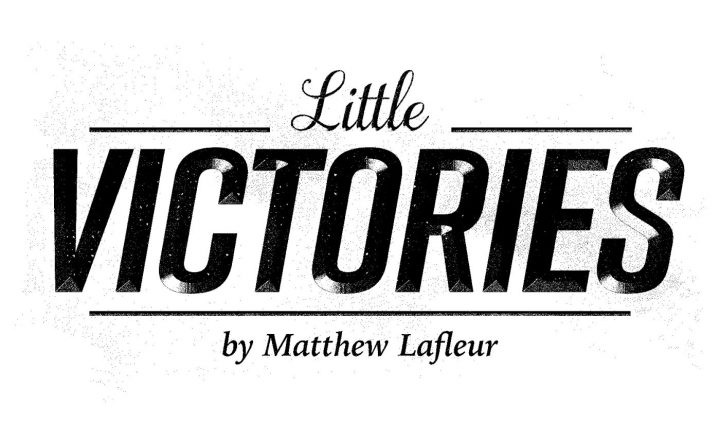‘I’m Going to Teach You to Walk’
Written by |

The sky turned pinkish and the clouds became bright blue as the Louisiana sun reached its western-most point and began to retreat from this summer day. It was five years ago. My mom’s friends had brought their 7-year-old nephew over to swim.
I was playing Super Mario Run on my cellphone. The boy noticed (probably because my height in my wheelchair was about equal to his own while standing) and came up to me.
“I really like to play Mario!” he said. I looked up from my phone to see a curious and kind boy. He’d recently gotten out of the pool, and water dripped off him onto the brick patio.
I smiled. Most times, kids and adults choose not to recognize someone in a wheelchair. Most people, including me, tend to avoid anything or anyone who is different. We’d rather cling to what is consistent, normal, and doesn’t challenge our worldview.
But here I was, a guy in a wheelchair invited into conversation with a kid. It was touching.
Maybe I am guilty of projection. I cling to the familiar but that doesn’t necessarily mean most people do.
“When I was little,” I told him, “I loved Super Mario. I used to play it every day.”
He watched intently as I played for another minute or two. I was about to ask him if he wanted to play, but when I looked up he was back in the swimming pool, enjoying being outdoors before the mosquitos chased us inside.
“Yeah, he really loves video games,” his uncle said from nearby. “I think you made a friend for life.”
About 15 minutes later, my new friend came up to me again, a towel around his shoulder.
“I’m going to teach you to walk,” he told me.
Before I could process that statement, his uncle jumped in. “You mean in the game, right buddy?”
The boy looked at his uncle, then back at me. He was quiet, and his face was blank. He didn’t mean the video game.
***
Maybe the problem is that we lose that genuine sense of curiosity as we age. Adults’ questions no longer seem poised with the best of intentions.
When we are faced with an unfamiliar situation, we choose silence over saying the wrong thing. We’re so afraid of offending someone that we don’t attempt to see them as a person.
I am especially guilty of this. Most of my friends are like-minded. When we’re together, there aren’t many controversial points to explain, nor uncomfortable situations to maneuver.
And if we surround ourselves only with the comfortable and familiar, we don’t give ourselves the chance to grow.
***
I turned to the boy. “I really appreciate that you want to teach me. I used to walk pretty well, but it got harder and harder for me over time. I use a wheelchair now because it makes it so much easier for me to get around,” I said, trying to simplify the truth about my Friedreich’s ataxia progression.
“Oh, OK,” he said, enthusiastically. His uncle offered a relieved smile, glad I wasn’t offended.
Maybe the courage of a child is what keeps adults from looking beyond our differences and seeing each other as people.
The sun finished setting. We went indoors for supper.
The boy asked to play Mario on my phone.
Today was a good day.
***
Friedreich’s Ataxia News is strictly a news and information website about the disease. It does not provide medical advice, diagnosis or treatment. This content is not intended to be a substitute for professional medical advice, diagnosis, or treatment. Always seek the advice of your physician or another qualified health provider with any questions you may have regarding a medical condition. Never disregard professional medical advice or delay in seeking it because of something you have read on this website.






Jeff Albertson
One day I hope to have the pleasure of meeting you. I am a volunteer with Canine Companions for Independence and the Periodic Paralysis Association and I have nothing but inspiration after reading your posts; your positive attitude and amazing writing skills provide hope. Thank you for your service to others.
Jeff
Matt Lafleur
Jeff, your comment really made my day. Thank you for what you do with canine companions and with the PPA. You are a true hero.